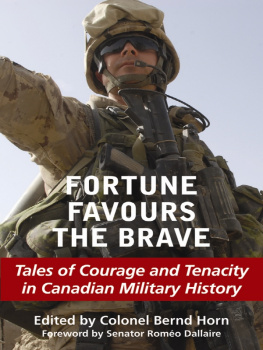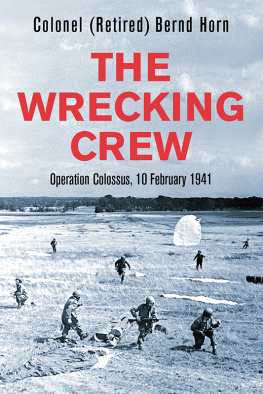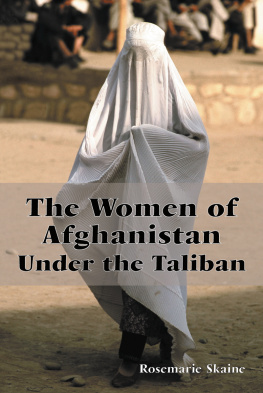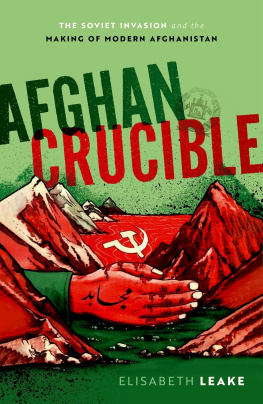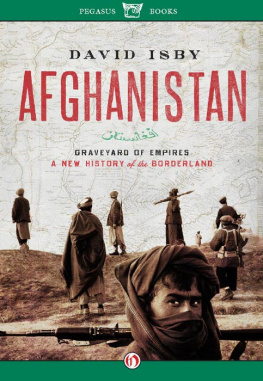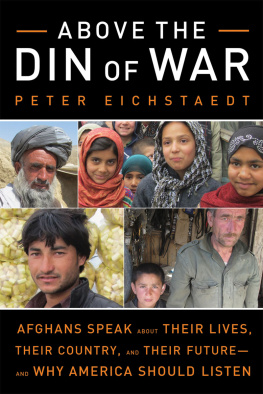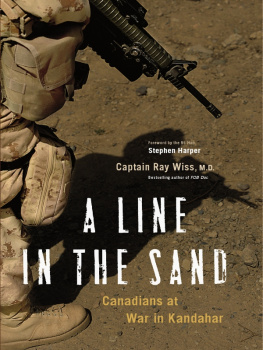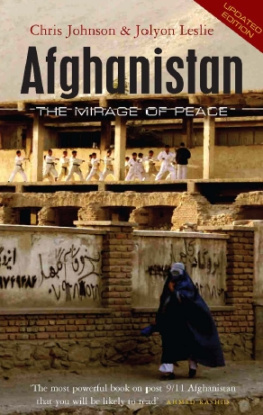A s with any written work, particularly edited volumes, many hands are at play. As such, we wish to extend our gratitude to all those who participated in the writing of this volume. Your time and effort in putting your thoughts and insights onto paper is greatly appreciated.
In addition, we would also like to acknowledge those who assisted us directly and indirectly by providing interviews, research materials, or images. In particular, we would like to thank Silvia Pecota for the use of her dramatic photographs from theatre as well as Graeme Smith for his captivating pictures from Panjwayi in Kandahar Province.
Finally, we would also like to thank Michael Carroll, Matt Baker, and the design team at Dundurn for, once again, creating such a refined volume from our manuscript. We would also be remiss if we did not thank Marie Claude Delcourt for the cover concept of this book.
1
Adjust Your Sights
Leading Issues Likely to Arise in Any Counter-Insurgency Campaign
Dr. Michael A. Hennessy
A s the title indicates, this chapter will provide a short primer, or extended aide memoire, for those who find themselves embroiled in a counter-insurgency (COIN) struggle. Note the use of the word struggle . War might come to mind, but that may not be a wholly adequate, or for that matter acceptable, descriptor. That one employs the term COIN implies there is an insurgency to be countered. It is to the nature of insurgency that we must first cast our minds.
Why do men rebel? Not a small question, and not one to be avoided by the counter-insurgent. There are many theories that the student of war would be wise to consult, and we shall review several inter alia ; however, no single theory has proven applicable to all circumstances. Rather than belabour the theory here, it suffices to note there are often multiple motives at work. Does poverty cause rebellion? Maybe. Does ideology cause rebellion? Maybe. Does ethnic/social/religious identity fuel rebellion? Again, maybe. Does state repression cause rebellion? Maybe. Does bad national government, corruption, or poor administration cause insurgency? Again, the answer is maybe. We could add to the list of attributed causes but find no definitive answer. Much theoretical work has gone toward supporting or refuting such motive causes, and no definitive answer will be given here. The truth of the matter is each or all of these elements may be present where a rebellion takes root. While there may well be other such causes, there is neither sufficient proof nor agreement for any cause and effect model. These facts should be kept in mind by those who find themselves thrust into the role of counter-insurgent, as efforts to ameliorate such causes will likely be part of the COIN strategy.
Whatever the true reasons an insurgency takes hold, almost all insurgencies have their own internal narrative that motivates and justifies the actions of the insurgents and undermines the legitimacy of the COIN forces. The narrative of grievance, injustice, and necessary change through a call to arms can vary greatly between insurgencies but is a powerful tool in harnessing recruits, undermining the established government, undercutting the vigour of partners, and sowing doubt within the minds of the many undecided members of the domestic population.
While there are many insurgencies active in the world today, a study of several older campaigns from the twentieth century can help establish the contours of what one may encounter in any insurgency. As such, this chapter will provide some of those examples.
Pro Insurgency: Patterns and Observations
Understanding how insurgencies work is fundamental to understanding how they may be overcome. Given the interest in COIN, one might think we have a good understanding of insurgency; however, there is little comparative work on the dynamics and successful techniques of insurgents. Both solid knowledge and abstract theorizing remains contentious. Nevertheless, there are a number of individual studies that explain how a particular insurgency has fared; for brevity, only three will be examined here.
The first is the Arab revolt of 191718. Writing about how he fomented the Arab revolt, T.E. Lawrence provides a useful estimate of the situation that guided his actions. Recognizing that his adversaries, the Ottoman Empire, found it necessary to garrison population centres along the main rail lines of the Arabian Peninsula, he chose not to strike at their garrisons directly. Force against force attacks would give advantage to the Turks. His rag-tag volunteer army of tribal nomads would not stand heavy losses and required careful direction. Instead, the Turks would be left to wither on the vine. In avoiding standing fights and set piece battles, the aim was to preserve his own forces and whittle down the physical and psychological will of the enemy. Eventually, the Turkish commanders conceded the ground and abandoned their outposts. Externally supplied arms and the strategic depth for manoeuvre presented by the vast wilderness and topography of the theatre of operations made such a campaign possible he likened it to a campaign of commerce raiding at sea.
Also factored into Lawrences concept of operations was the inability of the enemy to swamp the theatre with reinforcements. Protracting the struggle through avoiding battle on unfavourable terms, using the theatres physical geography, and taking advantage of the adversarys geopolitical limits figured large in Lawrences campaign design.
A similar constraint played a role in the Anglo-Irish War, or War of Irish Independence, of 191921. The rural insurgency that took hold in Ireland in 1919 aimed to wrest control of the countryside from the representatives and functionaries of the British-controlled government. Police stations, post offices, local courts, and tax collection were targeted, and their functions were replicated by the republican forces, who established a parallel, or shadow, government. To further their aim of rendering Ireland ungovernable, republicans ran for election to parliament. If elected, these members of parliament (MPs) refused to sit in the British parliament and instead agitated for a local parliament to be formed. Such action undercut the legitimacy of the British government and military action.
British reprisal policies, many of which originated during the Boer War at the turn of the century, included mass internment without trial for suspects and the summary eviction of families and destruction of their homes on suspicion of shielding republicans. These measures further fuelled resentment. Several well-reported breakdowns of police discipline particularly the police riot, torching of Cork city, and later murder of the mayor brought international criticism and concern in London.
Weary of war after the experiences of 191418, and recognizing that Britain had been preparing to offer Ireland its own parliament on the eve of that struggle, few in Britain favoured using all the resources of the Empire or unrestrained warfare to attack the republicans. The commander of British forces requested authority to begin a campaign of summary justice, particularly the execution (judicial or otherwise) of suspects, and suggested that, if that policy could not be followed, the government would be better off seeking a negotiated peace.
The government followed this recommendation. Although the republicans settled for the partition of Ireland, their relatively small guerrilla campaign, with probably less than 4,000 armed members at its peak during pre-peace talks, enjoyed very real, though limited, tactical success; nevertheless, it achieved its strategic purpose because of Britains geopolitical context. The power potential of that state was not fully exercised, because of historical circumstances such limitations should be considered in all cases of responses to an insurgency.


